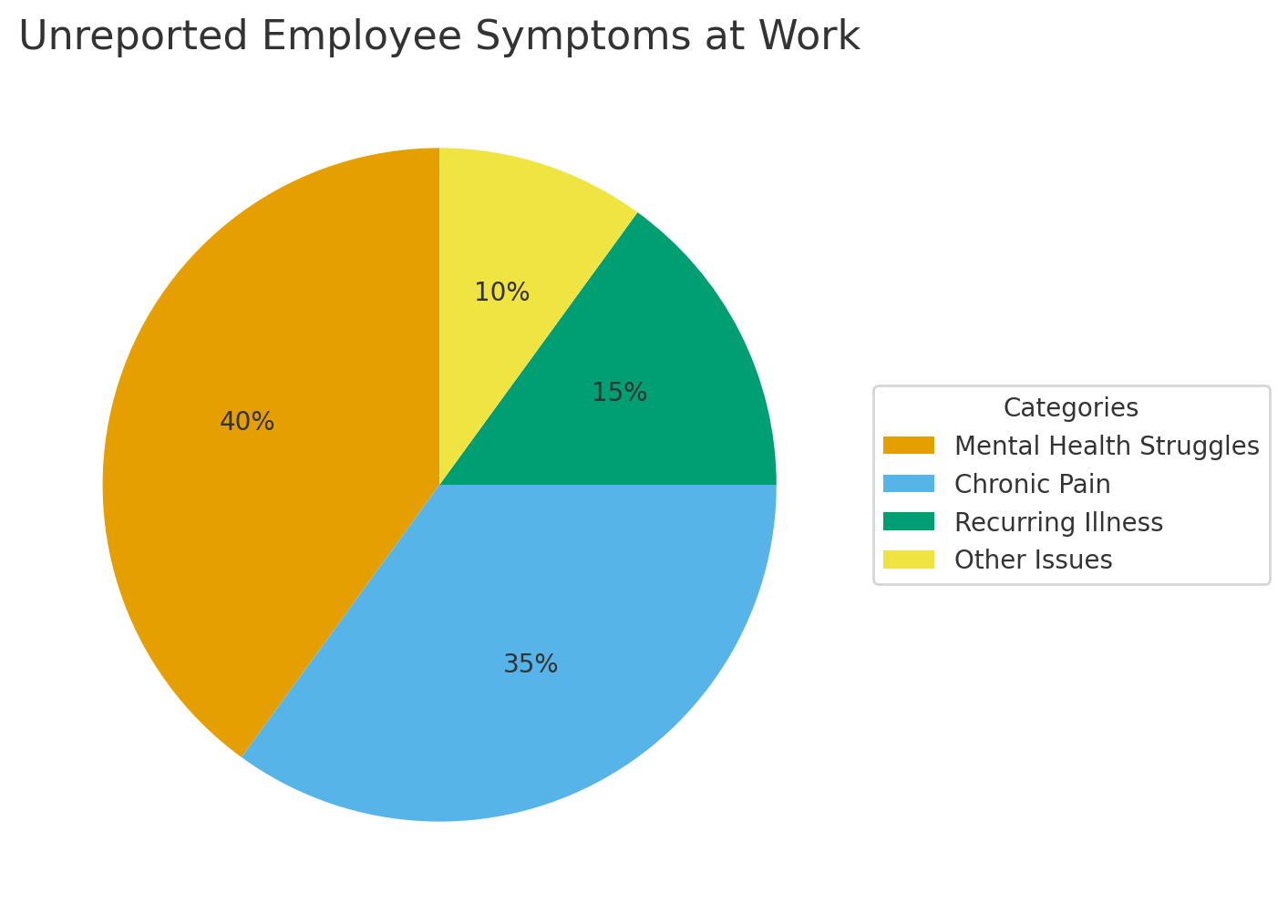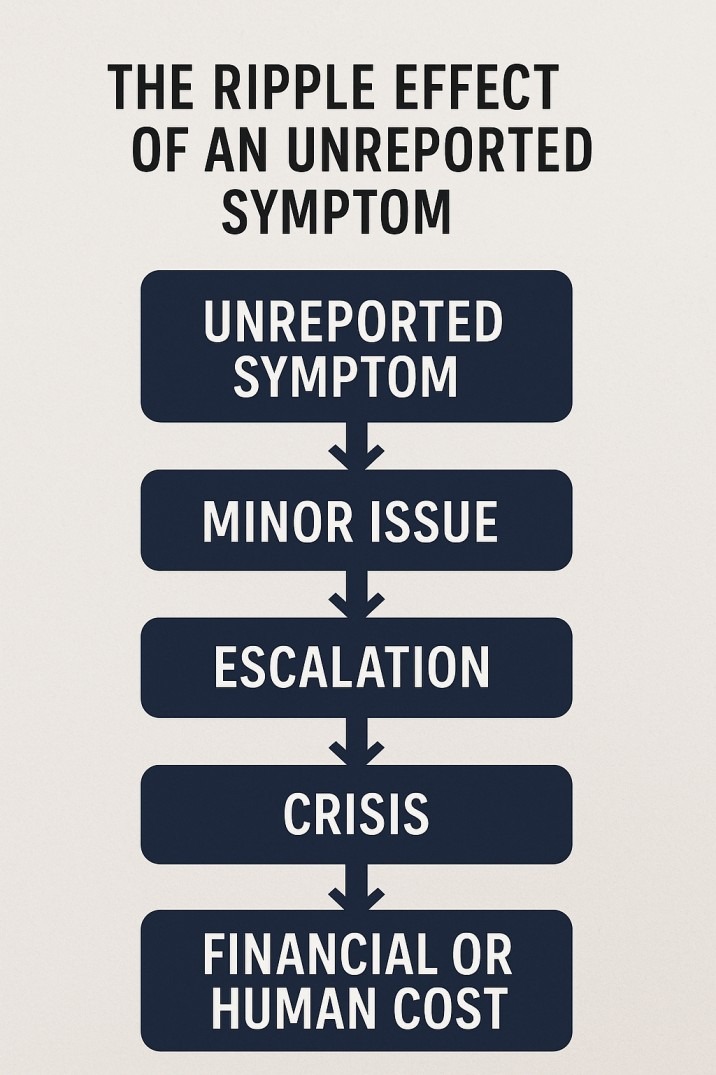Workplaces thrive on clear communication, trust, and the ability to respond quickly when issues arise. But one question still causes hesitation among many employees: which symptom must be reported to a manager? The hesitation often stems from uncertainty—what is serious enough to escalate, and what can be handled alone? Understanding this distinction is vital not only for organizational success but also for the safety and well-being of everyone involved.
This article explores the importance of identifying and reporting symptoms—whether physical, behavioral, or organizational—that could affect work performance, team morale, or compliance. We’ll also look at why prompt reporting creates healthier workplaces and how employees can balance discretion with responsibility.
Why Reporting Symptoms Matters in the Workplace
In any work environment, ignoring early warning signs can escalate minor issues into serious problems. Whether it’s an employee’s health concern, a behavioral shift, or a technical red flag, managers rely on accurate information to take action. When employees ask themselves which symptom must be reported to a manager, they are essentially weighing personal judgment against organizational responsibility.
Research from the American Management Association suggests that organizations with transparent reporting cultures experience 37% fewer compliance violations than those where employees remain silent. This shows that reporting symptoms is not only an individual responsibility but also a collective safeguard.
Physical Health Symptoms at Work
The most straightforward category is physical health. Employees experiencing symptoms that could impact workplace safety or public health must never hesitate. For example, someone in food service who wonders which symptom must be reported to a manager should immediately think of fever, coughing, diarrhea, or vomiting—any of which could spread illness to others.
Healthcare professionals recommend reporting:
- Persistent fever
- Severe coughing fits
- Contagious skin infections
- Dizziness that could lead to accidents
These are not just inconveniences; they are potential workplace hazards. By reporting them promptly, employees protect both themselves and their colleagues.
Psychological and Behavioral Symptoms
Modern workplaces increasingly recognize the impact of mental health. If an employee is struggling with anxiety, burnout, or depression, they may not always feel comfortable sharing. Yet behavioral changes—such as sudden withdrawal, uncharacteristic aggression, or missed deadlines—can signal deeper issues.
So, which symptom must be reported to a manager in this context? Signs that could compromise safety, team performance, or the employee’s well-being must be shared. Managers are not therapists, but they can connect employees with resources, adjust workloads, or provide support. Silence, on the other hand, can deepen the problem.

Technical or Operational Symptoms
In industries reliant on machinery, software, or data, the term “symptom” also applies to operational anomalies. A strange noise in factory equipment, a repeated software error, or unusual financial data patterns—all fall under which symptom must be reported to a manager.
Failing to report these early signs often leads to larger, costlier problems. A minor vibration in machinery today could signal a breakdown tomorrow. A suspicious transaction flagged by accounting software might prevent fraud. The lesson is simple: symptoms are often subtle hints of bigger issues.
Team Dynamics and Interpersonal Symptoms
Sometimes, symptoms show up in team interactions rather than individual health. Repeated conflicts, exclusion of certain members, or rising tension in meetings can erode trust. Employees may question whether interpersonal frictions fall under which symptom must be reported to a manager.

The answer lies in potential consequences. If the symptom disrupts productivity, lowers morale, or risks escalating into harassment, managers must be informed. Reporting is not about “telling on” colleagues; it is about preventing toxic dynamics before they solidify.
Legal and Compliance Symptoms
Compliance violations often start with small warning signs. An employee who ignores safety protocols “just this once” or a financial officer who consistently delays documentation may be exhibiting symptoms of larger problems. Knowing which symptom must be reported to a manager here can protect the company from fines, lawsuits, or reputational damage.
Examples include:
- Bypassing safety procedures
- Mishandling confidential data
- Overlooking regulatory deadlines
The earlier managers know, the faster they can course-correct.
The Risk of Underreporting
Failing to report a symptom—whether physical, behavioral, technical, or legal—has cascading consequences. A contagious illness might lead to a team-wide outbreak. A malfunctioning tool could injure someone. A brewing interpersonal conflict could cost valuable employees.
When employees hesitate and ask themselves which symptom must be reported to a manager, they must remember that underreporting is often riskier than overreporting. Managers can filter out what needs action, but they can’t fix what they don’t know.

Encouraging a Reporting Culture
Employees are more likely to report symptoms if they feel safe from retaliation. According to a 2024 Deloitte survey, 63% of workers hesitate to raise concerns due to fear of negative consequences. This shows that even when people know which symptom must be reported to a manager, culture plays a decisive role.
To improve, organizations should:
- Normalize reporting as proactive, not problematic.
- Train managers to respond with empathy.
- Create anonymous reporting channels.
The goal is to make reporting feel like contributing, not complaining.
Balancing Judgment and Responsibility
Not every small issue needs escalation. A mild headache, a single missed deadline, or one technical glitch may not warrant immediate reporting. The real key to answering which symptom must be reported to a manager lies in two questions:
- Could this symptom affect the safety, health, or performance of others?
- Could ignoring it lead to bigger risks or costs?
If the answer is “yes” to either, reporting is the responsible choice.
The Manager’s Perspective
Managers benefit greatly from timely symptom reports. They cannot be everywhere at once, and their decisions depend on accurate feedback. When employees wonder which symptom must be reported to a manager, they must remember that managers view information as a tool, not a burden.
Early reporting allows them to:
- Redirect resources
- Provide accommodations
- Prevent legal complications
- Strengthen trust within the team
This partnership between employees and managers is what keeps workplaces resilient.
Final Words
At its core, the question which symptom must be reported to a manager is about accountability. Symptoms are not always dramatic—sometimes they are whispers, not alarms. But in every workplace, small signs matter.
Reporting symptoms protects health, preserves team morale, ensures compliance, and prevents financial losses. By understanding the wide range of symptoms—from physical illness to behavioral shifts, from technical glitches to compliance concerns—employees can make informed decisions. The safest path is always to speak up early.
Andrea Balint is a writer and researcher focused on human behavior, workplace psychology, and personal growth. Through her work at CareersMomentum, she explores how mindset, leadership, and emotional intelligence shape modern careers. With a background in communication and HR development, she transforms complex ideas into practical insights that help readers build clarity, confidence, and professional purpose.
